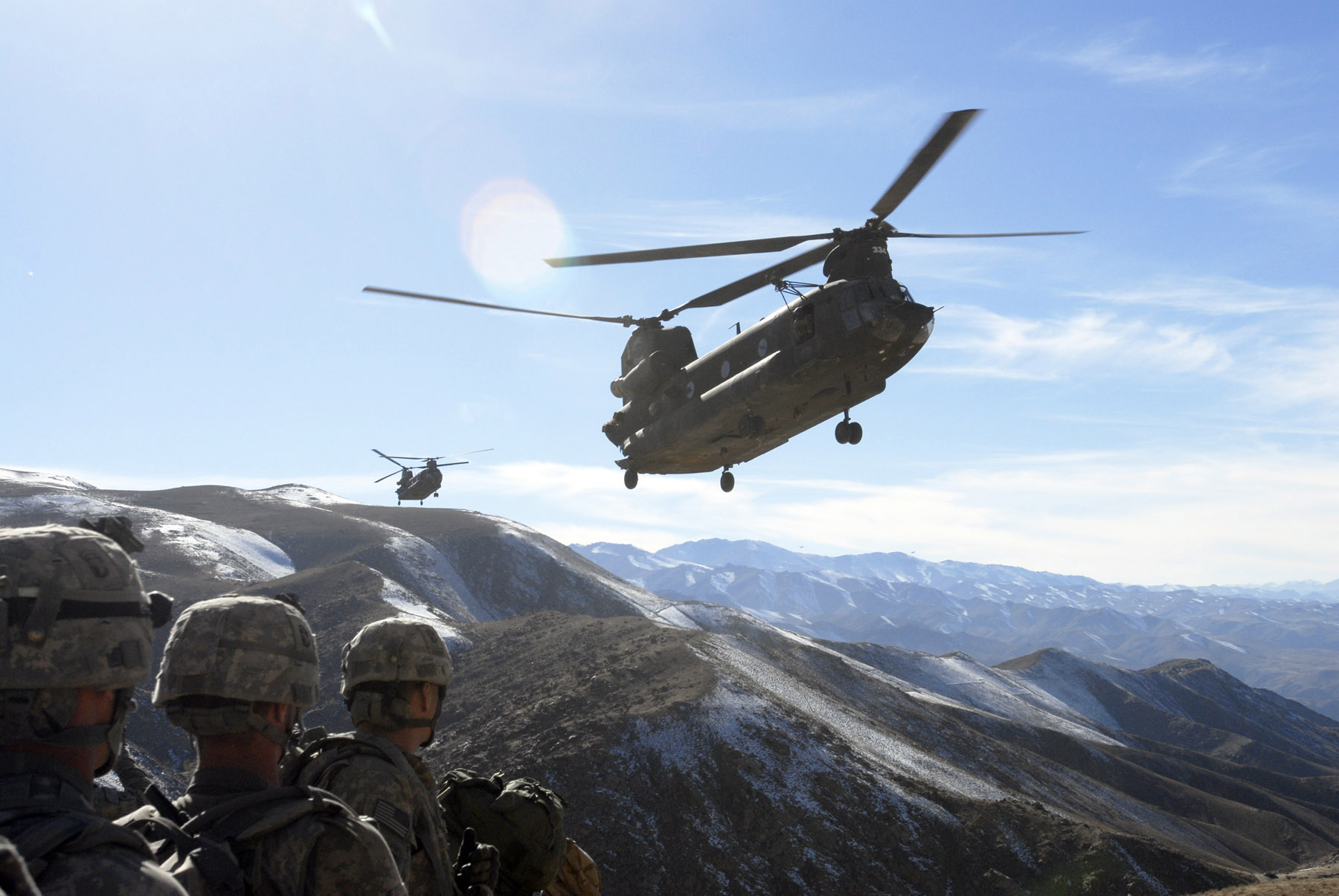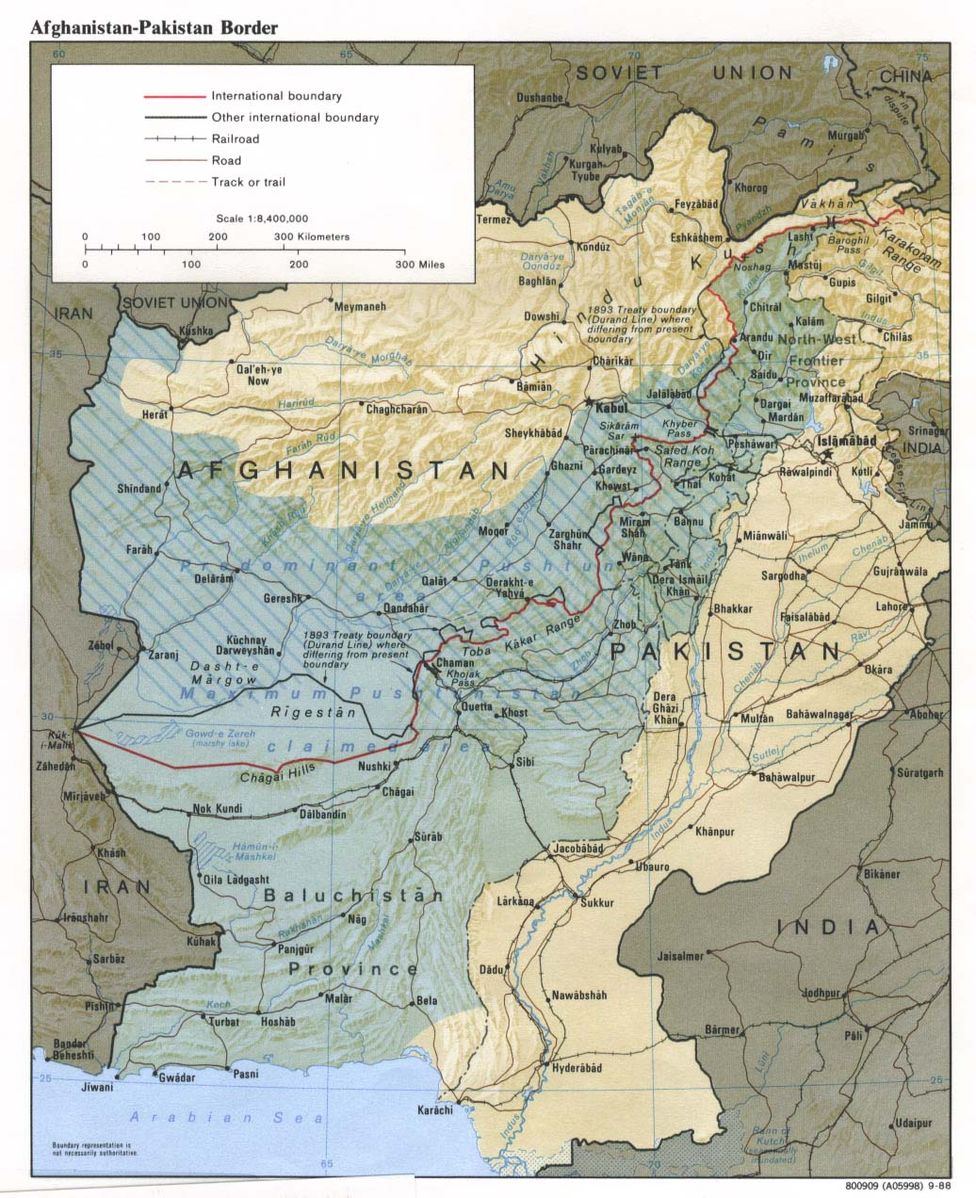
Photo: U.S. Army/Wikimedia
President Donald Trump’s nominee to be the next U.S. commander of forces in Afghanistan has described Pakistan’s cooperation as vital to the success of America’s South Asian strategy, while also demanding that Islamabad do more to check cross-border Taliban militancy.
“Pakistan’s cooperation is vital to the success of our South Asia strategy. Achieving long-term stability in Afghanistan will be difficult without Pakistan’s support, but it will not be impossible,” Lt. Gen. Austin Miller said.
Miller, who Tuesday appeared for a hearing before the Senate Armed Services Committee, spoke as U.S. and Pakistan looked to an Afghan reconciliation push after months of deadly violence in the landlocked country, wracked by war, Afghan Taliban insurgency, drugs, infighting and ISIS attacks.
Miller is expected to get the Senate panel’s approval to lead U.S. forces in Afghanistan. Nearly 17 years after the U.S. invaded the country in the immediate aftermath of the 9/11 terrorist attacks, the U.S. Pakistan and Afghanistan are working to renew Afghan peace process. After months of tension, Pakistan and Afghanistan appear to be working jointly and constructively to push reconciliation process in Afghanistan. The U.S. and Pakistan are also believed to be cooperating to address mutual concerns as part of efforts to stabilize Afghanistan and the militancy-hit region. The recent ceasefire between Kabul and the Afghan Taliban insurgents has raised hopes for a peace process.
According to advance questions by lawmakers and answers by Gen. Miller posted on the Senate Committee’s website, the nominee acknowledged Pakistani sacrifices but also wanted to see more efforts to curb the cross-border militancy.
“Pakistan has made many sacrifices in the war against terrorism; its people have suffered greatly and its security forces have fought bravely. My understanding is that we have not yet seen these counter-terrorism efforts against anti-Pakistan militants translate into definitive actions against Afghan Taliban or Haqqani leaders residing in Pakistan.”
- Pakistan-Afghanistan border also called Durrand Line Photo: Central Intelligence Agency
In reply to a question, Miller notes that since President Trump’s August 2017 announcement of the South Asia Strategy the United States has “seen incremental positive changes in Pakistan’s behavior towards Afghanistan, particularly in the effort to improve its bilateral relationship with our Afghan partners.”
“Those changes however, have not been decisive nor are they irreversible. We still look for conclusive evidence that Pakistan shares our vision of a secure and stable Afghanistan. Reduction in violence and Taliban sincere participation in a peace process would be indicators of progress with which Pakistan can assist,” he added.
Islamabad has rejected allegations that it colludes with militants or has provided a sanctuary to the Afghan Taliban. The U.S.-Pakistan relations slumped following President Trump’s twitter allegation that Islamabad harbored Afghan militants and did not do enough in return for American assistance.
Since then, Washington has suspended security aid for Pakistan. It’s only lately that two countries have showed some signs of retrieving the bilateral ties with the U.S saying it would address Pakistani security concerns and has also eliminated Mullah Fazlullah, the anti-Pakistani TTP militant leader, who was hiding in Afghanistan, and operating from Kunar province.

Standing by on a hill top, Soldiers with the 101st Division Special Troops Battalion, 101st Airborne Division watch as two Chinook helicopters fly in to take them back to Bagram Air Field, Afghanistan Nov. 4, 2008. The Soldiers searched a small village in the valley below for IED making materials and facilities. (Photo by Spc. Mary L. Gonzalez, CJTF-101 Public Affairs)
For its part, Pakistan appeared to have pushed the Afghan Taliban to express willingness toward Afghan reconciliation.
But still a lot of work remains to be done to bring the Afghan war to a close as the country remains stuck in a mountain of troubles despite U.S. investments in socioeconomic projects.
At play in the region also are South Asian rivalries between Islamabad and New Delhi as both compete for influence in Afghanistan. Islamabad has often told the world about Indian sponsorship of insurgency in its strategically located southwestern Balochistan province. Pakistan says India backs militancy from across the Afghan border, where it has outsize presence.
India and Pakistan are also caught in geopolitical competition over multi billion China Pakistan Economic Corridor. Pakistanis analysts say India is trying to expand its influence and circumvent Pakistan by aiding construction of Chabahar seaport in Iran, and has refused to abide by the Trump Administration’s sanctions against Tehran.
During the answers released by the Senate Armed Services Committee, Miller listed areas, where the U.S. and Pakistan could collaborate.
“We look to Pakistan to ensure that its territory is not used by terrorist groups to attack or otherwise menace neighboring states. We expect Pakistan to contribute to an end to conflict in Afghanistan by exerting whatever influence it has on the Taliban to lower violence and participate in the peace process. Improved cooperation in the trade of goods and services and the movement of people will contribute greatly to our goal of stabilizing Afghanistan. Pakistan’s own stability and prosperity will benefit from peace in Afghanistan.”
The general, who has a long combat experience including in post-9/11 wars in Afghanistan and Iraq, and has led Joint Special Operations Command, said the U.S. wants to partner with Pakistan, and the U.S. must have high expectations in this regard.
“We seek to partner with Pakistan and look to the support of like-minded countries to persuade Pakistan that its interests are only served through increased cooperation with the Government of Afghanistan. Pakistan has much to gain from supporting the efforts of the 39-member coalition that is working to bring peace and stability to Afghanistan.”What are the major challenges you foresee in the execution of the mission in Afghanistan, Miller was asked.
“We cannot compel reconciliation in Afghanistan while Pakistan, Russia, and Iran continue to enable the Taliban insurgency. NATO, U.S., and Afghan efforts continue to ensure the Taliban cannot win militarily. However, military pressure alone is not sufficient to achieve a political solution to the Afghan conflict. Diplomatic and social pressure are also necessary. In addition, ISIS-K remains a barrier to Afghan stability despite heavy losses of terrain and fighters. They maintain resilient recruiting efforts, largely by recruiting fighters from violent extremist organizations, and continue to undermine the Afghan Government’s credibility by attacking innocent civilians. Finally, Afghan reforms have not yet eradicated systemic corruption that limits the combat effectiveness of fighting units and undermines governmental legitimacy.”






![By James Mollison (James Mollison) [CC BY-SA 2.5 Wikimedia Commons(http://creativecommons.org/licenses/by-sa/2.5)], via Wikimedia Commons](https://www.viewsnews.net/wp-content/uploads/2016/01/KhyberPassPakistan.jpg)












